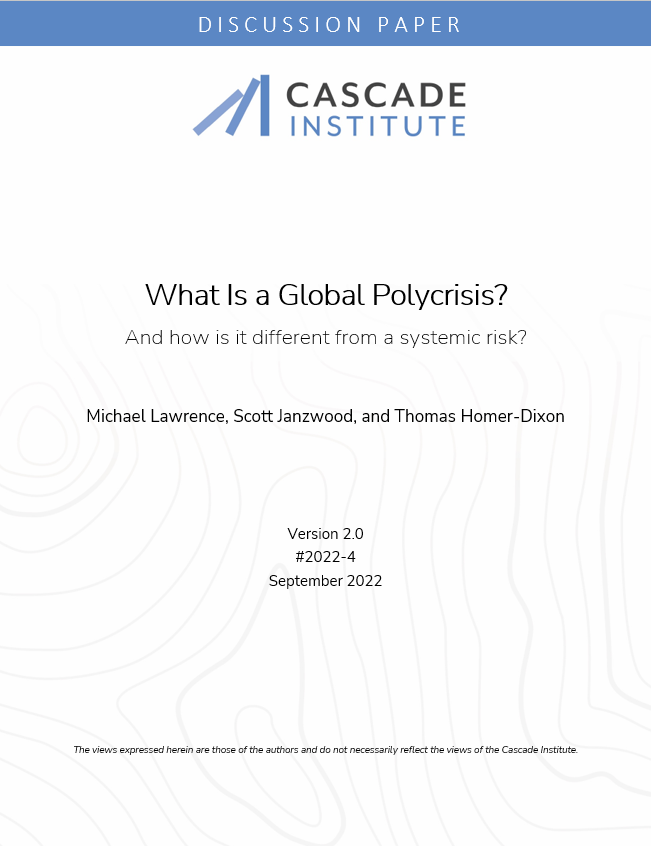This discussion paper argues that the concept of “global polycrisis” provides a necessary and productive framework with which to understand and address major problems afflicting humanity today. A global polycrisis occurs when crises in multiple global systems become causally entangled in ways that significantly degrade humanity’s prospects. These interacting crises produce harms greater than the sum of those the crises would produce in isolation, were their host systems not so deeply interconnected.
The paper elaborates several important features of this definition, compares it to other authors’ use of the term, and distinguishes it from the related concept of systemic risk.
Dr. Michael Lawrence is the Research Lead of the Polycrisis Project. He uses complexity science to understand the coevolution of conflict, violence, and social structure, and through this work he has developed expertise on global governance, societal collapse, the psychology of dehumanization, transnational organized crime, and peacebuilding. Mike holds a PhD in Global Governance from the University of Waterloo.
Dr. Scott Janzwood is the Research Director at the Cascade Institute. His research focuses on how scientists measure and communicate uncertainty and collaborate with policy makers to address emerging risks. He holds a PhD in Global Governance from the University of Waterloo.
Dr. Thomas Homer-Dixon is the Founder and Director of the Cascade Institute. Trained in international relations and conflict theory at the Massachusetts Institute of Technology, his research focuses on threats to global security in the 21st century, including economic instability, climate change, and energy scarcity.

